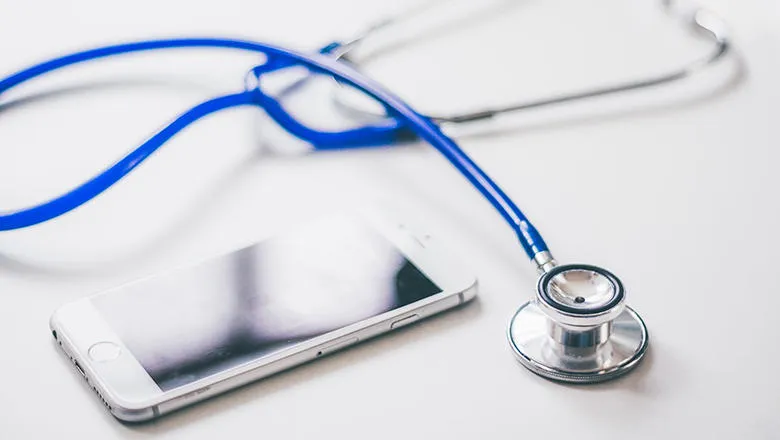In Uganda we are keen for our nurses to deliver care flexibly to patients to increase access to healthcare for people living with long term health conditions such as diabetes and high blood pressure. REaCH training helps nurses to develop their skills and confidence in consulting with patients by mobile phone, being aware of privacy and how they keep records of the consultation. We are working towards having REaCH training available in Uganda and accredited so that it is a recognised professional development opportunity which will support patients in accessing more safe and trustworthy healthcare.
Dr Safinah Museene, Commissioner Health Education and Training at the Ministry of Education and Sports in Uganda
18 October 2023
Remote consultations improve access to healthcare in Nigeria and Tanzania
Remote consultations can improve access to healthcare in low- and middle-income countries.

A new report published in The Lancet Global Health finds that, with appropriate training and funding, remote consultations can improve access to healthcare in low- and middle-income countries. Randomised controlled trials in Nigeria and Tanzania found that remote consultations improve health care coverage for people with diabetes, high blood pressure and respiratory conditions without compromising patient safety or the trustworthiness of consultations.
In March 2020, high income countries responded swiftly to the coronavirus pandemic by replacing face-to-face healthcare with remote health consultations. This approach reduced the risk of COVID-19 transmission for both patients and healthcare workers.
However, middle- and low-income countries faced barriers to implementing remote consultations, including a shortage of devices, and a lack of electronic records, digital infrastructure and training. The REaCH trials demonstrate that these challenges can be overcome and that remote consultations can be successfully rolled out in middle- and low-income countries.
In 2020, the REaCH team led by researchers in the Faculty of Nursing, Midwifery & Palliative Care at King’s College London adapted an existing evidence-based e-learning training course for remote consultations to be piloted first in Tanzania and then fully trialled in both Tanzania and Nigeria.
In Nigeria, REaCH training resulted in a fourfold increase in remote consultations, representation one in six of all consultations for people with diabetes, high blood pressure and respiratory conditions. Face-to-face consultations also continued, and the number of consulting minutes rose without an increase in staff numbers.
Recommendations for safe, remote consultations in middle- and low-income countries
- Remote consultations should be underpinned by national, standardised training which can be delivered online.
- Remote consultations should be part of national strategies for achieving universal health coverage and maintaining public health.
- The funding of airtime and data packages needs to be addressed as part of the strategy.
Professor Jackie Sturt, lead author and REaCH project lead, said: “Remote consultations not only improve access to healthcare during pandemics, but also reduce travel time for patients who may need to travel long distances to see a medical practitioner face-to-face. We are currently working with policymakers in ten sub-Saharan countries to roll-out REaCH training for safe and trustworthy remote consultation. This has the potential for countries to meet sustainable development goals through increasing universal health coverage.”
Professor Frances Griffiths on Warwick Medical School who led the interview study alongside the clinical trail said: "The nurses and doctors who participated in our study worked out how best to use remote consulting for their own patients and clinic staff. The patients told us how much easier it was for them to get advice about their health conditions when they needed it. With training and supportive policy, remote consulting can make a real difference to care provision."
Professor Akinyinka Omigbodun of the College of Medicine, University of Ibadan and the lead investigator in Nigeria on the REaCH project said: “Both the health workers and the patients found a lot to like about remote consultations. The health workers felt that they were able to attend to greater numbers of patients without experiencing overcrowding in the clinics; the patients who were traders or market women were happy that they did not have to leave their shops or market stalls before they could consult with their care provider, thereby boosting their earnings.”
Professor Senga Pemba, co-investigator for REaCH and Head of Public Health Department at St. Francis University College of Health and Allied Sciences in Tanzania said: "We observed that there is a lot of informal remote consultations going on in various countries! The REaCH training which is freely available online will significantly help to formalise remote consultations in these countries.”

